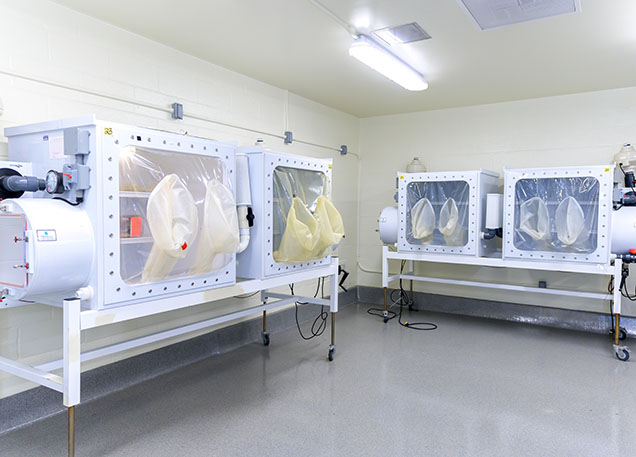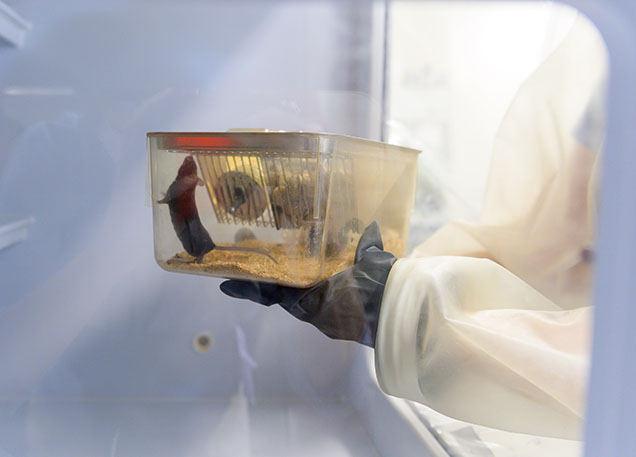During Quarantine animals receive health evaluations before they are cleared for conventional holding and released to investigators. The quarantine period varies depending on species.
Non-Human Primate Quarantine
NHP quarantine is a NIH policy to protect the NIH intramural NHP colonies as well as to ensure adequate conditioning of NHP before they are started on a research protocol.
For details on availability,
contact the NHP Quarantine group.
For more information on non-human primate quarantine, please see
NIH Policy Manual 3044-1.
Rodent Quarantine
DVR maintains quarantine holding facilities for rodents coming into the NIH from non-approved vendors and foreign sources, such as Universities or overseas facilities.
Housing
DVR houses quarantined rodents in semi-rigid isolators. Most quarantine isolators can hold up to 10 cages, and DVR can accommodate larger shipments in a few larger isolators that hold up to 30 cages. Quarantine holding is charged per isolator per day according to current fiscal year rates.
Animals from Non-Approved Sources - Rodents
Non-approved sources include universities, animal facilities outside of the NIH, overseas facilities, or production facilities that have not been approved by the NIH.
A Rodent Import Permit (NIH Form #2369-1) must be completed and approved by your IC rodent import officer (often the APD) and the Facility Veterinarian. A copy of the health surveillance report obtained within a calendar year must accompany the rodent import application. You IC rodent import officer or the Facility Veterinarian can assist in obtaining the necessary information.
Once submitted for review, the IC Rodent Import Officer and Facility Veterinarian will determine the necessary plan for quarantine or facility level isolation.
Isolation - Rodents
Depending on the health status of the sending facility and the intention to house in colony rooms or re-derive into a facility of higher health status; the IC Rodent Import Officer and Facility Veterinarian may approve housing of the animals in facility isolation or a rederivation holding facility as an alternative to quarantine. Animals housed in isolation will undergo additional testing.


